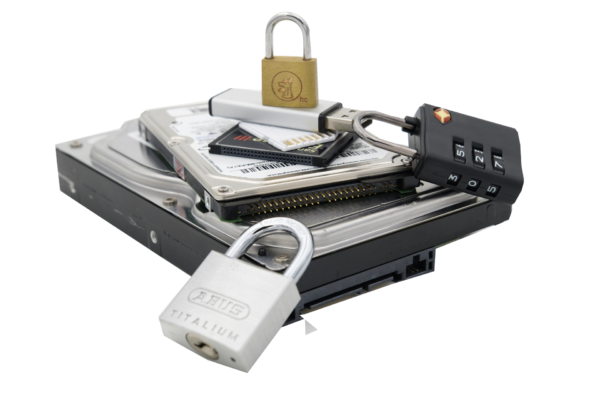Data backups are essential. Make sure you take them. And when you take them, make sure they work.

We can’t make this any clearer. And as an accounting, payroll, CRM and trade counter software supplier based in Somerset, we emphasise the need for regular, viable back-ups to all of our clients throughout the UK. But if we’re honest, no matter how hard we try, some businesses will always adopt a relaxed attitude towards backing up their data. And this doesn’t seem like a problem to them…until something goes wrong.
Now, while the loss of certain documents can be annoying and time-consuming, loss of your accounting or customer data can be catastrophic to your business. Imagine not knowing how much or who you had invoiced in the last month, what products you had sold or the names and contact info for your 100 best customers. Or all of your customers for that matter. At best this can cost you thousands. At worst, it can cost you your business.
So even if you think you are sorted as far as backups go, take 5 minutes to check through our quick guide below to make sure.
- There are many ways in which your data can become corrupt or lost. From physical risks such as failed hard drives or even fire or flooding to digital threats from viruses or ransomware. Cyber crime is big business, with those involved finding ever more sophisticated ways to kidnap your data. A comprehensive, viable and up-to-date backup will protect you from all of these risks.
- Take comprehensive backups – make sure you are saving and copying ALL of the data that you need to run your business. Ask yourself – if you came in to work tomorrow and your building had burned to the ground, what information would you need to get your business back up and running as soon as possible? Make sure that you have it.
- Ensure your backups are viable. Test them. You might be taking backups religiously, but have you ever checked that you can actually restore all of your data from a backup? Try it. If there is a corruption in your data, the backup could be useless. And you won’t know until it’s too late. Checking your backups occasionally can save you a lot of problems.
- Up-to-date backups are essential. Some businesses process hundreds of invoices and thousands of sales each day. But even if you don’t, losing a week’s worth of accounting information can cost you dearly. You really don’t want to be asking your self and your sales team “Does anyone remember what we sold last week?” Take backups daily, not just when you think about it. Make it part of your routine. That way, in a worst case scenario you only have one day’s trading to worry about.
- Think about where you are storing your backups. This may sound obvious but you’d be surprised! Don’t backup your server data on the same server. If you are using Cloud based hosting for your data, check the hosting company’s Ts & Cs regarding backups. Don’t assume that they will automatically be taking them. Even if they are, take your own local backup (they almost all have a “get out” clause stating that ultimate responsibility for your data is your own. And knowing who to blame is small consolation when all of your data has gone.)
- Following on from the above point, make sure you take off-site backups. Use a removable device such as a memory stick or external hard drive; or upload to a cloud storage account. This will avoid problems should your office computers or server crash, are damaged through flood or fire, or are stolen.
- Take more than one backup. For most businesses, backups don’t take very long. Have more than one copy. Don’t rely on just one backup to save your business.
- Take quick local backups to your PC or server before carrying out hard to reverse processes like period ends or running payroll. Although not intended as your daily off-site backup, these can be really useful if you need to reinstate data after something went wrong.
- Check if your accounting software has an auto backup function. For example, our Chancellor accountancy package has a back up facility that allows you to automatically create and save daily backups. A word of caution though. Any auto backup program should be seen as a “belt and braces” option and should not replace best practice with regards to your own backup processes.
- Go old school. Print summary reports to PDF or even paper. Should you have a complete backup disaster and all else has failed, you will at least be able to manually recreate your most important accounting data.
- Remember – the ultimate responsibility for your data, and for having adequate backups, falls to you, the business. It’s all well and good knowing who to blame if things go wrong but this won’t help you get back to where you need to be. Don’t rely on anyone else. Take your own backups. And do it often.
Now we know a lot of this will seem a bit scary. But to be fair, when things go wrong with data it tends to be bad. Very bad. And no matter how robust your software is, or water-tight your processes, in the real world things do occasionally go wrong. But don’t panic.
The good news is, if you take on board what we have discussed and get your backups sorted, you’ll have nothing to worry about. At Benchmark we have been writing business software and helping companies throughout Somerset, the South West and the UK for over 40 years. There isn’t much we haven’t seen or done. So if you want some honest, straightforward advice about looking after your data, get in touch. We’re here to help.
Benchmark Software
Do business. Better.